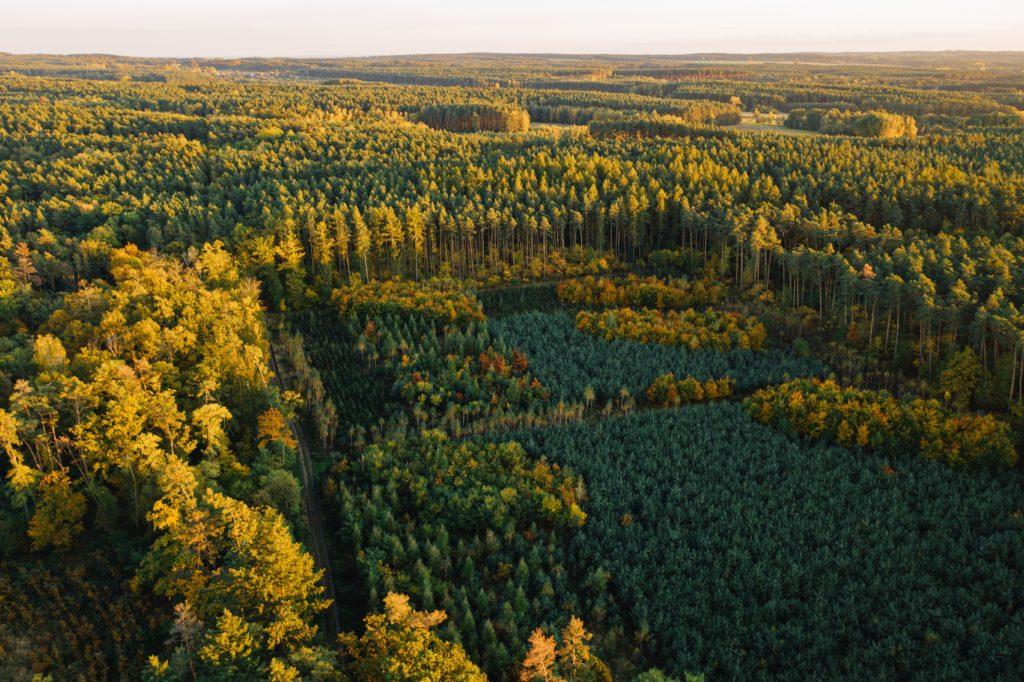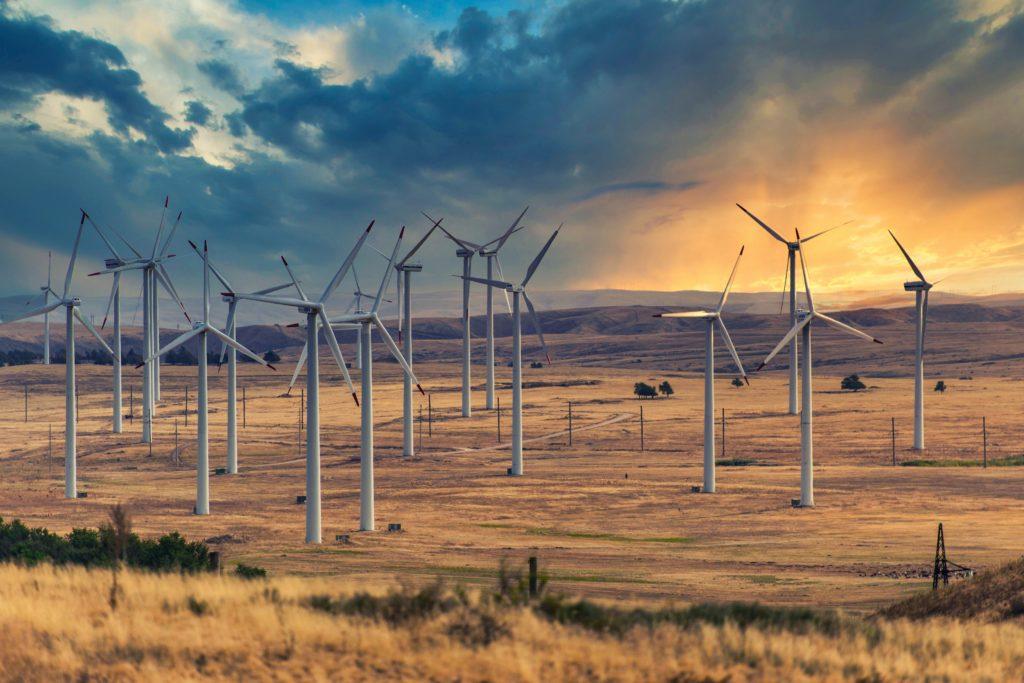The IB Environmental Systems and Societies (ESS) Extended Essay is an opportunity for students to explore a topic of their choice within the field of environmental science. The extended essay is a challenging and rewarding task, requiring in-depth research and critical thinking skills. However, choosing an ESS extended essay topic can be daunting.
Are you ready to embark on an exciting and rewarding exploration journey in environmental science? The IB ESS Extended Essay is your chance to delve into a topic of your choice and showcase your research and critical thinking skills.
Choosing an environmental system and society topic for your extended essay can be daunting, but fear not! We have compiled a list of interesting and engaging ideas to inspire you in your quest for the perfect ESS extended essay topic.
From the impact of urban agriculture on the environment to the ethics of conservation, these topics are sure to spark your interest and ignite your passion for environmental science.
With the world facing complex environmental challenges, there has never been a more important time to explore the science of sustainability. By selecting an ESS extended essay topic that aligns with your interests and the key concepts covered in the ESS course, you can contribute to our understanding of these challenges and showcase your skills as a researcher and academic writer.
So, grab your notepad and get ready to embark on a journey of discovery. The ESS extended essay is your chance to make a difference and contribute to a better future for our planet.
How to Invent a Good IB ESS topic?
Inventing a good ESS EE topic requires careful consideration of the key concepts and topics covered in the ESS course. Here are some tips to help you invent a good ESS EE topic:
1. Identify your interests
Choose a topic that you are interested in and passionate about. This will make the research process more enjoyable and motivating.
2. Choose a specific research question
Narrow down your topic to a specific research question that can be answered through research and data analysis. A good research question should be clear, specific, and answerable.
3. Consider the key concepts and topics covered in the ESS course
Ensure that your research question is relevant to the key concepts and topics covered in the ESS course. These include, but are not limited to, sustainability, ecosystems, biodiversity, pollution, climate change, and resource use.
4. Conduct preliminary research
Before finalizing your research question, conduct some preliminary research to ensure that there is enough information available to answer your question. This will also help you to refine your research question and identify potential data sources.
5. Consider the feasibility of data collection
Ensure that the data required to answer your research question is feasible to collect. This includes considering data availability, the time needed to collect data, and any ethical considerations related to data collection.
6. Consult with your ESS supervisor
Your ESS teacher can provide valuable guidance and feedback on your research question and extended essay topic. They can also help you identify potential data sources and provide guidance on data analysis.
Overall, inventing a good ESS extended essay topic requires careful consideration of your interests, the key concepts and topics covered in the ESS course, and the feasibility of data collection.
With a clear research question and a well-planned research methodology, you can produce an IB EE demonstrating your understanding of environmental science and your ability to conduct research and data analysis.
List of IB ESS EE Topic Ideas
Here are some creative ideas to inspire your ESS extended essay topic:
Urban Agriculture: The Impact of Community Gardens on Urban Environments
This topic explores the role of community gardens in urban environments. Students can investigate urban agriculture’s environmental, social, and economic benefits and the potential for these practices to mitigate urban environmental problems.
The Effect of Climate Change on Ocean Acidification

This topic delves into the impact of climate change on ocean acidification, a process whereby carbon dioxide dissolves in seawater, reducing the pH level of the water. Students can investigate the effect of ocean acidification on marine ecosystems and the potential for mitigation strategies to address this issue.
The Environmental Impact of Industrial Agriculture
This topic explores the environmental impact of industrial agriculture, including the use of pesticides, fertilizers, and other chemicals. Students can investigate the ecological, economic, and social consequences of industrial agriculture and the potential for alternative food systems.
The Ethics of Conservation: Balancing Human Needs with Environmental Protection
This topic delves into conservation ethics, exploring the tension between human needs and environmental protection. Students can investigate the role of conservation in society, and the potential for ethical frameworks to guide conservation efforts.
The Impact of Air Pollution on Public Health
This topic explores the impact of air pollution on public health, including respiratory and cardiovascular diseases. Students can investigate the sources of air pollution, the distribution of pollution across urban areas, and the potential for policy solutions to mitigate the health impacts of air pollution.
The Intersection of Environmental Justice and Climate Change
This topic explores the intersection of environmental justice and climate change, examining the disproportionate impact of climate change on marginalized communities. Students can investigate the political, social, and economic factors contributing to environmental injustice and the potential for policy solutions to address these issues.
The Role of Renewable Energy in Sustainable Development
This topic delves into the role of renewable energy in sustainable development, exploring the potential for renewable energy sources to mitigate climate change and promote social and economic development. Students can investigate the technological, economic, and political barriers to the widespread adoption of renewable energy, and the potential for policy solutions to promote a transition to a renewable energy future.
The Impacts of Plastic Pollution on Marine Ecosystems
This topic explores the impact of plastic pollution on marine ecosystems, including the physical, chemical, and biological consequences. Students can investigate the sources of plastic pollution, the distribution of plastic waste across the ocean, and the potential for policy solutions to address this issue.
The Effects of Deforestation on Biodiversity Conservation

This ESS topic delves into the impact of deforestation on biodiversity conservation, exploring the ecological, social, and economic consequences of deforestation. Students can investigate the drivers of deforestation, the impacts on local communities and biodiversity, and the potential for policy solutions to promote forest conservation.
The Implications of Energy Use on Climate Change
This IA topic explores the implications of energy use on climate change, examining the role of fossil fuels in global greenhouse gas emissions. IB students can investigate the potential for renewable energy sources to reduce greenhouse gas emissions, and the challenges associated with transitioning to a low-carbon economy.
The Intersection of Water Resources and Climate Change
This topic explores the intersection of water resources and climate change, examining the impact of climate change on water availability, quality, and management. Students can investigate the potential for adaptive water management strategies to address climate change impacts, and the challenges associated with implementing such strategies.
The Role of Environmental Education in Promoting Sustainability
This topic delves into the role of environmental education in promoting sustainability, exploring the potential for education to promote behavior change and sustainable practices. Students can investigate the effectiveness of environmental education programs, the challenges associated with implementing such programs, and the potential for innovative solutions.
The Impacts of Urbanization on Natural Ecosystems
This ESS topic explores the impacts of urbanization on natural ecosystems, examining the ecological, social, and economic consequences of urbanization. Students can investigate the drivers of urbanization, the effects on local ecosystems and biodiversity, and the potential for policy solutions to promote sustainable urban development.
The Intersection of Food Security and Climate Change
This IA ESS topic explores the intersection of food security and climate change, examining the impact of climate change on food production, distribution, and access. Students can investigate the potential for adaptive agricultural strategies to address climate change impacts, and the challenges associated with implementing such strategies.
The Implications of Soil Degradation on Agricultural Production
This topic delves into the implications of soil degradation on agricultural production, exploring the ecological, social, and economic consequences of soil degradation. Students can investigate the drivers of soil degradation, the impacts on local communities and food security, and the potential for soil conservation strategies to address this issue.
The Role of Ecotourism in Promoting Conservation

This ESS topic explores the role of ecotourism in promoting conservation, examining the potential for ecotourism to support local communities, promote conservation, and mitigate negative impacts on natural ecosystems. Students can investigate the effectiveness of ecotourism initiatives, the challenges associated with implementing such initiatives, and the potential for innovative solutions.
The Impacts of Land Use Change on Ecosystem Services
This topic explores the impacts of land use change on ecosystem services, examining the ecological, social, and economic consequences of changes in land use. Students can investigate the drivers of land use change, the impacts on local communities and ecosystem services, and the potential for policy solutions to promote sustainable land use practices.
The Intersection of Air Pollution and Climate Change
This topic explores the intersection of air pollution and climate change, examining the impacts of air pollution on climate change and the impacts of climate change on air quality. Students can investigate the sources of air pollution, the distribution of pollution across urban areas, and the potential for policy solutions to address this issue.
The Role of Green Infrastructure in Urban Resilience

This IA topic delves into the role of green infrastructure in urban resilience, exploring the potential for green infrastructure to mitigate the impacts of climate change, reduce urban heat island effects, and promote biodiversity conservation. Students can investigate the effectiveness of green infrastructure initiatives, the challenges associated with implementing such initiatives, and the potential for innovative solutions.
The Implications of Human Population Growth on the Environment
This topic explores the implications of human population growth on the environment, examining the ecological, social, and economic consequences of population growth. Students can investigate the drivers of population growth, the impacts on natural ecosystems and biodiversity, and the potential for policy solutions to promote sustainable population growth.
The Intersection of Gender and Environmental Issues
This ESS IA topic explores the intersection of gender and environmental issues, examining the differential impacts of environmental degradation on women and men. In addition, students can investigate the potential for gender-sensitive environmental policies and programs to promote environmental sustainability and social justice.
The Impacts of Environmental Migration on Sustainable Development
This topic delves into the impacts of environmental migration on sustainable development, exploring the social, economic, and environmental consequences of forced displacement due to environmental degradation and climate change. Moreover, IB students can investigate the potential for policies and programs to support environmental migrants and promote sustainable development.
The Role of Indigenous Knowledge in Environmental Management
This topic explores the role of indigenous knowledge in environmental management, examining the potential for traditional ecological knowledge to inform environmental policy and management practices. Students can investigate the challenges associated with integrating indigenous knowledge into mainstream environmental management, and the potential for innovative solutions.
The Implications of Waste Management on Environmental Sustainability

This topic explores the implications of waste management on environmental sustainability, examining the social, economic, and environmental consequences of waste generation, disposal, and recycling. Students can investigate the potential for waste reduction and circular economy strategies to promote sustainable waste management.
The Intersection of Sustainable Development and Human Rights
This topic explores the intersection of sustainable development and human rights, examining the potential for environmental sustainability and social justice to be mutually reinforcing. Students can investigate the challenges associated with balancing economic development, environmental protection, and human rights, and the potential for innovative solutions.
The Impacts of Natural Resource Extraction on Local Communities
This topic delves into the impacts of natural resource extraction on local communities, exploring the social, economic, and environmental consequences of extractive industries such as mining, oil and gas, and logging. Students can investigate the potential for policies and programs to promote responsible resource extraction and support affected communities.
The Role of Citizen Science in Environmental Monitoring
This IA topic explores the role of citizen science in environmental monitoring, examining the potential for community-based monitoring initiatives to complement traditional scientific monitoring methods. Students can investigate the effectiveness of citizen science initiatives, the challenges associated with implementing such endeavors, and the potential for innovative solutions.
Select Your Topic and Start Writing an IB ESS EE
As you begin your exploration of environmental science through the IB ESS Extended Essay, remember that this is more than just an academic exercise. It is a chance to make a tangible impact on the world around us.

Need help with your ESS extended essay?
You can also use our extended essay writers team’s services if you need assistance selecting a topic. Furthermore, we can also help you write your extended essay from scratch or edit your draft following the IB criteria.
By selecting an ESS topic that excites you, conducting extensive research, and carefully analyzing your data, you can make a valuable contribution to our understanding of the complex environmental challenges we face.
NEW IB ESS EE Topic Ideas
We want to also give you more options:
Here are three topics and research questions for each subcategory in IB Environmental Systems and Societies, designed to meet the IB Extended Essay criteria:
Climate Change
Let’s kick off with Climate Change, where we examine how global warming is reshaping our planet. This section invites us to think critically about the changes occurring and consider sustainable solutions for the future.
Impacts of Climate Change on Biodiversity
- Topic: The Effect of Climate Change on Coral Reef Bleaching
- Research Question: How does climate change contribute to the frequency and severity of coral reef bleaching events?
- Topic: Climate Change and Migratory Bird Patterns
- Research Question: How have migratory patterns of bird species been affected by climate change in the last decade?
- Topic: Climate Change and Invasive Species Expansion
- Research Question: How does climate change facilitate the expansion of invasive species in temperate ecosystems?
Mitigation Strategies for Climate Change
- Topic: Efficacy of Carbon Offsetting in Aviation
- Research Question: How effective are carbon offsetting initiatives in reducing the carbon footprint of the aviation industry?
- Topic: Urban Green Spaces as a Climate Change Mitigation Strategy
- Research Question: To what extent do urban green spaces contribute to mitigating climate change in densely populated areas?
- Topic: Renewable Energy Adoption in Developing Countries
- Research Question: What are the barriers to adopting renewable energy sources in developing countries, and how can they be overcome?
Climate Change and Human Health
- Topic: Impact of Heatwaves on Urban Populations
- Research Question: How do heatwaves exacerbated by climate change impact the health of urban populations?
- Topic: Vector-Borne Diseases and Climate Change
- Research Question: How has the distribution of vector-borne diseases shifted due to climate change?
- Topic: Climate Change and Food Security
- Research Question: What is the relationship between climate change and food security in sub-Saharan Africa?
Moving on from the atmospheric shifts of climate change, we turn our attention to the lifeblood of our planet: water. In the Water Resources section, we’ll explore the challenges related to scarcity, quality, and management of this essential resource.
Water Resources
Welcome to Water Resources, where we dive into issues surrounding the availability and purity of water. Here, we’ll investigate sustainable practices to ensure access for everyone and maintain healthy ecosystems.
Water Scarcity and Conservation
- Topic: Water Conservation Techniques in Arid Regions
- Research Question: Which water conservation techniques are most effective in arid regions for sustainable agriculture?
- Topic: Impact of Desalination on Water Scarcity
- Research Question: To what extent can desalination alleviate water scarcity in coastal cities?
- Topic: Rainwater Harvesting in Urban Areas
- Research Question: How effective is rainwater harvesting in reducing water scarcity in urban areas?
Water Quality and Pollution
- Topic: Effects of Agricultural Runoff on Freshwater Ecosystems
- Research Question: What are the impacts of agricultural runoff on the biodiversity of freshwater ecosystems?
- Topic: Plastic Pollution in Rivers
- Research Question: How does plastic pollution affect the water quality and aquatic life in major rivers?
- Topic: Industrial Effluents and Water Quality
- Research Question: What are the long-term effects of industrial effluents on water quality in developing countries?
Sustainable Water Management
- Topic: Integrated Water Resource Management in River Basins
- Research Question: How effective is integrated water resource management in balancing ecological and human water needs in river basins?
- Topic: Sustainable Irrigation Practices in Agriculture
- Research Question: What sustainable irrigation practices can be implemented to reduce water usage in agriculture?
- Topic: Community-Based Water Management Initiatives
- Research Question: How do community-based water management initiatives contribute to sustainable water use in rural areas?
From the flowing waters, we shift gears to the dynamic world of Energy Resources. This next section focuses on the balance between fulfilling our energy demands and reducing environmental impacts.
Energy Resources
In Energy Resources, we explore the complexities of powering our world. From harnessing renewable sources to understanding the repercussions of fossil fuels, this area challenges us to envision a sustainable energy future.
Renewable Energy Solutions
- Topic: Solar Energy Potential in Tropical Regions
- Research Question: What is the potential of solar energy as a sustainable power source in tropical regions?
- Topic: Wind Energy Impact on Local Ecosystems
- Research Question: What are the ecological impacts of wind energy farms on local ecosystems?
- Topic: Geothermal Energy and Its Sustainability
- Research Question: How sustainable is geothermal energy as an alternative energy source?
Impact of Fossil Fuels on the Environment
- Topic: Oil Spills and Marine Biodiversity
- Research Question: What are the long-term effects of oil spills on marine biodiversity in coastal regions?
- Topic: Coal Mining and Land Degradation
- Research Question: How does coal mining contribute to land degradation and habitat loss?
- Topic: Air Pollution from Fossil Fuel Power Plants
- Research Question: What are the health impacts of air pollution from fossil fuel power plants on nearby communities?
Energy Efficiency and Conservation
- Topic: Energy-Efficient Building Designs
- Research Question: How effective are energy-efficient building designs in reducing energy consumption and greenhouse gas emissions?
- Topic: Public Transportation and Energy Conservation
- Research Question: To what extent does the expansion of public transportation systems contribute to energy conservation in urban areas?
- Topic: Household Energy Consumption Patterns
- Research Question: What are the main factors influencing household energy consumption patterns in developed countries?
Next up, we delve into the vibrant realm of Biodiversity and Conservation, where we’ll celebrate the diversity of life and examine the efforts to protect it.
Biodiversity and Conservation
Biodiversity and Conservation is all about appreciating and safeguarding the variety of life on Earth. Here, we’ll look at the threats facing biodiversity and the strategies in place to preserve our natural world.
Habitat Loss and Fragmentation
- Topic: Deforestation and its Impact on Amazon Rainforest Biodiversity
- Research Question: How does deforestation affect biodiversity in the Amazon rainforest?
- Topic: Urban Expansion and Wildlife Habitat Fragmentation
- Research Question: What are the effects of urban expansion on wildlife habitat fragmentation and biodiversity loss?
- Topic: Agricultural Land Conversion and Biodiversity
- Research Question: How does the conversion of natural habitats to agricultural land affect biodiversity in rural areas?
Invasive Species and Ecosystems
- Topic: Invasive Plant Species and Their Impact on Wetlands
- Research Question: What is the impact of invasive plant species on the biodiversity and functioning of wetland ecosystems?
- Topic: Biological Control of Invasive Species
- Research Question: How effective is biological control in managing invasive species populations and protecting native biodiversity?
- Topic: Invasive Species Spread Due to Climate Change
- Research Question: How does climate change facilitate the spread of invasive species and impact native ecosystems?
Conservation Strategies for Endangered Species
- Topic: Effectiveness of Protected Areas in Conserving Endangered Species
- Research Question: How effective are protected areas in conserving endangered species and their habitats?
- Topic: Community Involvement in Wildlife Conservation
- Research Question: What is the role of community involvement in successful wildlife conservation projects for endangered species?
- Topic: Conservation Genetics and Endangered Species Recovery
- Research Question: How can conservation genetics contribute to the recovery and management of endangered species populations?
From the wonders of the natural world, we move to the human-made challenges in Pollution and Waste Management. In this section, we’ll tackle the issues of pollution and discover approaches to manage waste effectively.
Pollution and Waste Management
Pollution and Waste Management addresses the consequences of our consumption and explores ways to lessen our environmental footprint. It’s a crucial area for ensuring a cleaner, healthier planet.
Plastic Pollution in Marine Environments
- Topic: Microplastics in Ocean Food Chains
- Research Question: How do microplastics enter ocean food chains and what are the potential health impacts on marine species?
- Topic: Strategies to Reduce Plastic Pollution in Coastal Areas
- Research Question: What are the most effective strategies to reduce plastic pollution in coastal areas and protect marine life?
- Topic: Public Awareness and Behavior Change Regarding Plastic Use
- Research Question: How does public awareness and behavior change regarding plastic use impact the reduction of plastic pollution in marine environments?
Air Quality and Urban Pollution
- Topic: The Relationship Between Urban Green Spaces and Air Quality
- Research Question: How do urban green spaces contribute to improving air quality and reducing pollution in cities?
- Topic: Impact of Traffic Congestion on Urban Air Quality
- Research Question: What is the impact of traffic congestion on air quality in major urban centers?
- Topic: Indoor Air Pollution and Health Risks in Urban Homes
- Research Question: What are the main sources of indoor air pollution in urban homes, and what are the associated health risks?
Sustainable Waste Management Practices
- Topic: Zero Waste Initiatives in Urban Communities
- Research Question: How effective are zero waste initiatives in reducing waste generation and promoting sustainability in urban communities?
- Topic: E-Waste Recycling and Environmental Impact
- Research Question: What are the environmental impacts of e-waste recycling, and how can it be improved for sustainability?
- Topic: Composting Programs in Urban Settings
- Research Question: How effective are composting programs in urban settings in reducing organic waste and contributing to soil health?
Leaving behind the topic of waste, we now focus on the origin of our sustenance in Agriculture and Food Systems. Here, we’ll examine the environmental aspects of food production and consumption.
Agriculture and Food Systems
In Agriculture and Food Systems, we investigate the connection between farming practices and environmental sustainability. It’s an opportunity to consider how we can nourish the world while protecting our planet.
Sustainable Agriculture Practices
- Topic: The Role of Agroforestry in Sustainable Agriculture
- Research Question: How does agroforestry contribute to sustainable agriculture and biodiversity conservation?
- Topic: Organic Farming and Soil Health
- Research Question: What is the impact of organic farming practices on soil health and crop yield compared to conventional farming?
- Topic: Water-Saving Irrigation Techniques in Arid Regions
- Research Question: How effective are water-saving irrigation techniques in improving agricultural sustainability in arid regions?
Impact of Pesticides on the Environment
- Topic: Pesticide Runoff and Aquatic Ecosystems
- Research Question: What are the effects of pesticide runoff on aquatic ecosystems and water quality?
- Topic: Alternatives to Chemical Pesticides in Pest Management
- Research Question: What are the most effective alternatives to chemical pesticides in integrated pest management?
- Topic: Impact of Neonicotinoids on Pollinators
- Research Question: How do neonicotinoid pesticides affect pollinator populations and what are the implications for ecosystem services?
Food Security and Climate Change
- Topic: Climate Change Adaptation Strategies for Smallholder Farmers
- Research Question: What are the most effective climate change adaptation strategies for smallholder farmers to ensure food security?
- Topic: The Impact of Extreme Weather Events on Food Production
- Research Question: How do extreme weather events, such as droughts and floods, impact food production and food security?
- Topic: Urban Agriculture and Food Security in Developing Countries
- Research Question: How does urban agriculture contribute to food security and nutrition in developing countries?
Finally, we’ll contemplate the broader context of Human Population and Environment, looking at how our growing numbers interact with the natural world.
Human Population and Environment
Human Population and Environment is where we reflect on the relationship between people and the planet. It’s a space that challenges us to consider how we can coexist with the environment as our global population continues to expand.
Urbanization and Environmental Impact
- Topic: Sustainable Urban Planning and Environmental Conservation
- Research Question: How can sustainable urban planning practices contribute to environmental conservation in rapidly growing cities?
- Topic: The Environmental Footprint of Megacities
- Research Question: What is the environmental footprint of megacities, and how can it be reduced?
- Topic: Green Infrastructure and Urban Resilience
- Research Question: How does green infrastructure contribute to urban resilience and environmental sustainability?
Ecological Footprint and Sustainability
- Topic: Reducing the Ecological Footprint of College Campuses
- Research Question: What strategies can be implemented to reduce the ecological footprint of college campuses?
- Topic: Lifestyle Changes and Ecological Footprint Reduction
- Research Question: How do lifestyle changes, such as diet and transportation choices, impact an individual’s ecological footprint?
- Topic: Corporate Sustainability and Ecological Footprint
- Research Question: How are corporations implementing sustainability practices to reduce their ecological footprint?
Population Growth and Natural Resources
- Topic: The Impact of Population Growth on Water Resources
- Research Question: What is the impact of population growth on the availability and sustainability of water resources?
- Topic: Population Growth and Land Use Changes
- Research Question: How does population growth contribute to land use changes and habitat loss?
- Topic: The Relationship Between Population Growth and Energy Consumption
- Research Question: What is the relationship between population growth and energy consumption, and how can it be managed sustainably?
All of these topics and research questions are designed to inspire IB Environmental Systems and Societies students to engage in meaningful and manageable research projects that contribute to their understanding of complex environmental issues while meeting the IB Extended Essay criteria.
Final thoughts
The ESS extended essay offers a unique opportunity to express your creativity and ingenuity as you tackle some of our time’s most pressing environmental issues. With a bit of imagination and hard work, you can produce an extended essay that not only showcases your academic skills but also has the potential to make a positive difference in the world.
So, let your passion for the environment guide you as you explore the many fascinating topics within the field of environmental science. Whether you choose to examine the impact of urbanization on natural ecosystems or the role of environmental education in promoting sustainability, your ESS extended essay has the potential to inspire change and make a lasting impact on the world.
With the right research question, you will surely guarantee that your EE will pass and will never lead to failing grade.
Remember, the future of our planet is in our hands, and through the ESS extended essay, you have the power to shape it for the better.







